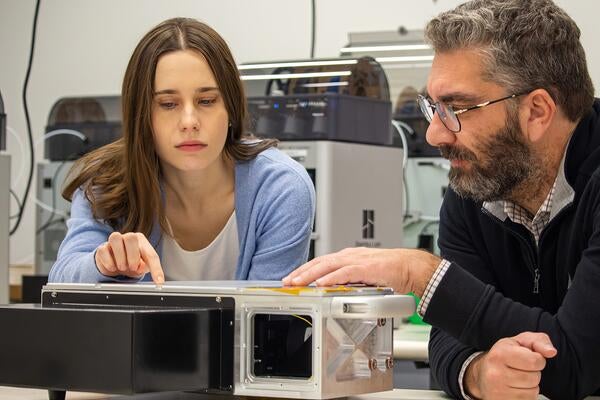
Computer drug simulations offer warning about promising diabetes and cancer treatment
Metformin highly effective in targeting diabetes and some cancers but potentially dangerous with others

Metformin highly effective in targeting diabetes and some cancers but potentially dangerous with others
By Media RelationsUsing computer drug simulations, researchers have found that doctors need to be wary of prescribing a particular treatment for all types of cancer and patients.
The drug, called metformin, has traditionally been prescribed for diabetes but has been used in clinical settings as a cancer treatment in recent years.
The researchers say while metformin shows great promise, it also has negative consequences for some types of cancers.
“Metformin is a wonder drug, and we are just beginning to understand all its possible benefits,” said Mehrshad Sadria, a PhD candidate in applied mathematics at the University of Waterloo. “Doctors need to examine the value of the drug on a case-by-case basis, because for some cancers and some patient profiles, it may actually have the opposite of the intended effect by protecting tumour cells against stress.”
The computer-simulated treatments use models that replicate both the drug and the cancerous cells in a virtual environment. Such models can give clinical trials in humans a considerable head-start and can provide insights to medical practitioners that would take much longer to be discovered in the field.
“In clinical settings, drugs can sometimes be prescribed in a trial and error manner,” said Anita Layton, professor of applied mathematics and Canada 150 Research Chair in mathematical biology and medicine at Waterloo. “Our mathematical models help accelerate clinical trials and remove some of the guesswork. What we see with this drug is that it can do a lot of good but needs more study.”
The researchers say their work shows the importance of precision medicine when considering the use of metformin for cancer and other diseases. Precision medicine is an approach that assumes each patient requires individualized medical assessment and treatment.
“Diseases and treatments are complicated,” Sadria said. “Everything about the patient matters, and even small differences can have a big impact on the effect of a drug, such as age, gender, genetic and epigenetic profiles. All these things are important and can affect a patient’s drug outcome. In addition, no one drug works for everyone, so doctors need to take a close look at each patient when considering treatments like metformin.”
Sadria, Layton and co-author Deokhwa Seo’s paper was published in the journal BioMed Central Cancer.

A car’s exhaust pipe emits black carbon. This sooty form of pollution alters the “light environment” beneath the snow, affecting plant growth. (Kmatija/Getty Images)
Read more
Research into light and snow interactions provides new insights into how pollution can affect vegetation growth and impact ecosystems

Read more
Phantom Photonics’ quantum remote sensing technology offers precision for industries operating in extreme environments

Read more
How machine learning empowers collaboration between computer science, math and medical research
The University of Waterloo acknowledges that much of our work takes place on the traditional territory of the Neutral, Anishinaabeg, and Haudenosaunee peoples. Our main campus is situated on the Haldimand Tract, the land granted to the Six Nations that includes six miles on each side of the Grand River. Our active work toward reconciliation takes place across our campuses through research, learning, teaching, and community building, and is co-ordinated within the Office of Indigenous Relations.